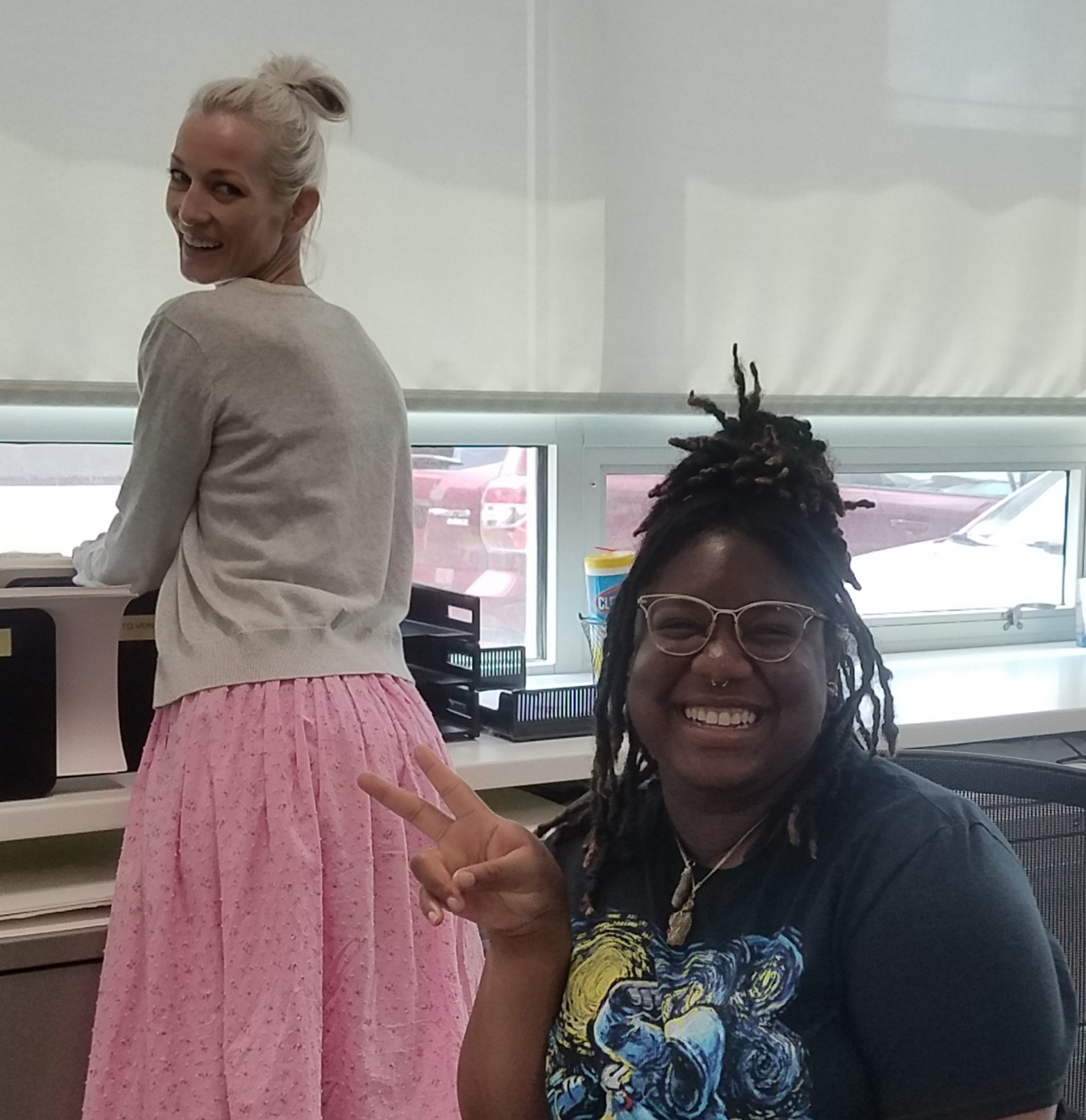Social Work Warrior College Hacks: Why should students get involved in research?
Author: AeYanna Yett, Center for Social Work Research Student Research Assistant and MSW-IMH Student
When you made the decision to pursue Social Work, did you ask yourself: What is calling me to Social Work? Who or what am I interested in helping? What need or issue do I want my life’s work to address?
You might answer all of these thought-provoking, hard-hitting questions by getting involved in research! Research is the way in which the academic community engages the world. It is a process of deliberate inquiry that encompasses a variety of academic and artistic endeavors that can produce knowledge, affirm current phenomenon, and improve our ability to problem-solve, all of which can result in the discovery of new ways of thinking. In other words, research is an art form, and as a researcher, you are an artist! And as art, research has the power to provoke change in thoughts, perceptions, and experiences in the communities it impacts.
Not convinced yet? Well, here are some considerations that can help you think more about getting involved in research:
Research…
- Provides the opportunity to learn more about topics/issues that interest you.
- Gives you hands-on experience in your interests.
- Hones your skills in problem-solving, applying theory, and critical analysis, which can yield greater confidence and independence, not only in the classroom but also in your field placement.
- Fosters a more integrated relationship with your interests and what you are studying through real-life application.
- Allows you to dig deeper and better understand what you want to do with your education and career path.
There are also some invaluable benefits for student involvement in research. As a student, you can:
- Get paid!
- Publish your work in academic journals or present your work at research events.
- Network through building relationships with faculty members and students who work in your field of interest. Relationships are essential to the human social experience, and you can gain mentors and find a community.
- Advance your leadership and teamwork skills through collaborating with others.
- Stimulate your learning by discovering something new and expand what you already know.
- Create a vibrant, well-rounded resume or curriculum vitae, complete with letters of recommendations and impressive experiences.
Overall, research is a great way to be informed about your work and practice interests and feel affirmed in the impact you would like to make with your education and career. It offers great benefits for you in both your personal and academic development, through which you can find a community ready to embrace your individuality and diversity. When getting involved in research, it is important to find someone whose interests map onto yours so that you and the research team you join can be supported in the research process.
My research journey

I bet you’re wondering, “Who is this person telling me to get involved in research? What do they know?” Well, as a macro-focused Dual-Title in Master of Social Work and Infant Mental Health student and the 2022-23 Social Work Student Senate Representative, research has always been my art form! Choosing to study and apply skills in the social sciences requires an inquisitive mind and a love for theory, and when you’re on the macro side of social work, critically analyzing phenomenon, learning and applying theory to inform your analysis, and using theory as a guide for action and change can spark a love for research. And this love runs deep!
Since a kid, I have always looked around in my environment, wondering about the explanations to my observations of the world around me. This has carried through my interests and studies from grade school to university, with my official entry into the world of research in my freshman year at Wayne State. As an undergraduate student, I was involved in the Initiative for Maximizing Student Diversity (IMSD) program, which supported and worked to give historically underrepresented minorities a presence in biomedical and behavioral research and careers. Since then, I have been able to add to four different research studies, present at three research symposiums, and contribute to a manuscript.
Recently, I brought my interests to the Center for Social Work Research, where I am honing my skills, adding new ones to my repertoire, and continuing to shape my love for research in a community. I am also conducting an independent research project with another Macro focused, dual-title MSW and Infant Mental Health student, Kristen Holinski, wherein we are examining the Infant and Early Childhood Mental Health professional landscape to understand the implications of the culture of practice on professional wellbeing.
Through my experiences, I have found research to be an academic artistic form and tool that has sculpted my interests, invoked a deeper sense of understanding, and has imparted a new way, more holistic way of scientifically interacting with the world around me.
Get involved
Now, I bet you’re wondering how you can enter this field. You can start by considering what issues or needs interest you. Once you have a few things in mind, feel free to reach out to faculty members that you have connections with to ask for support or direction. Or, if you’re feeling more independent, take a look at the Social Work faculty current research page and learn about research areas, publications, and presentations taking place. For undergraduate students, Wayne State University has the Undergraduate Research Opportunities Program (UROP), which helps you find a faculty mentor, research opportunities, and funding opportunities to support your research journey. For more overall support in learning your research interests or getting involved in research, connect with the Social Work Student Research Community (SWSRC) on Canvas.
View more Social Work Warrior College Hacks